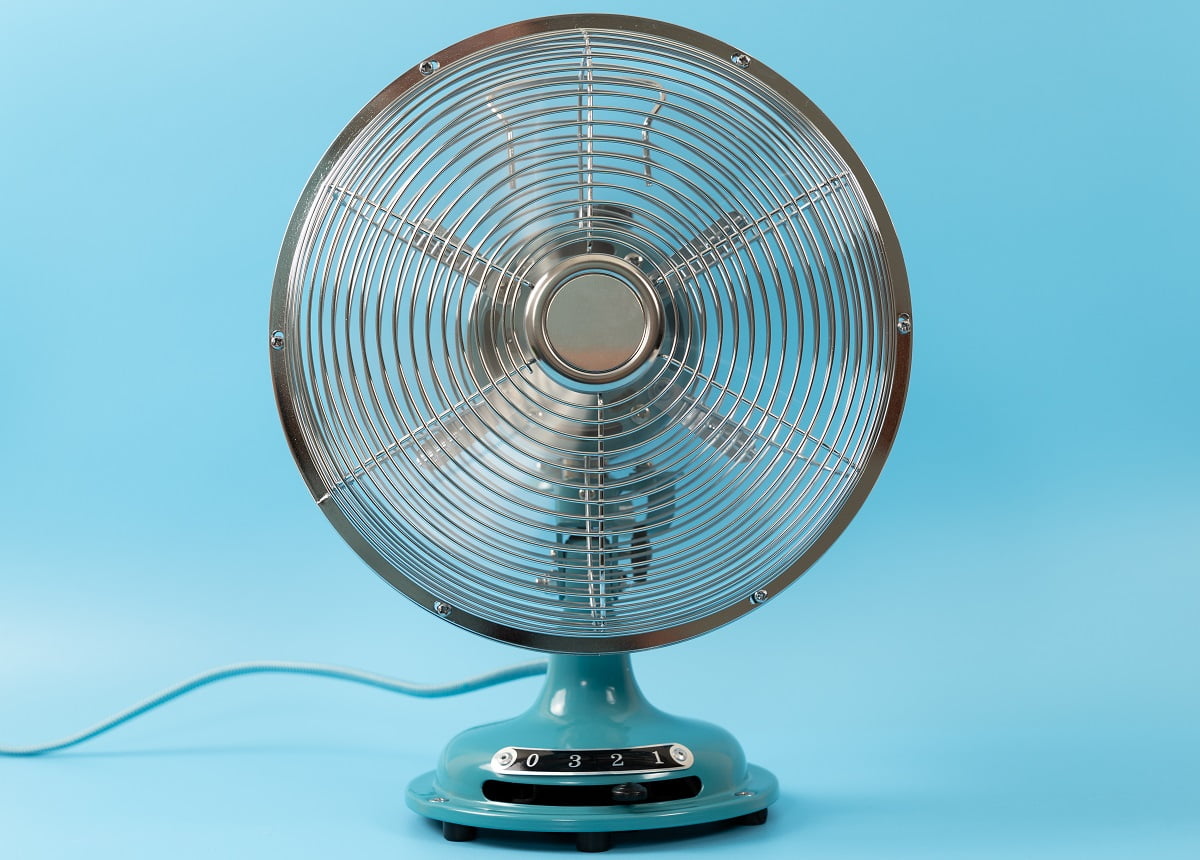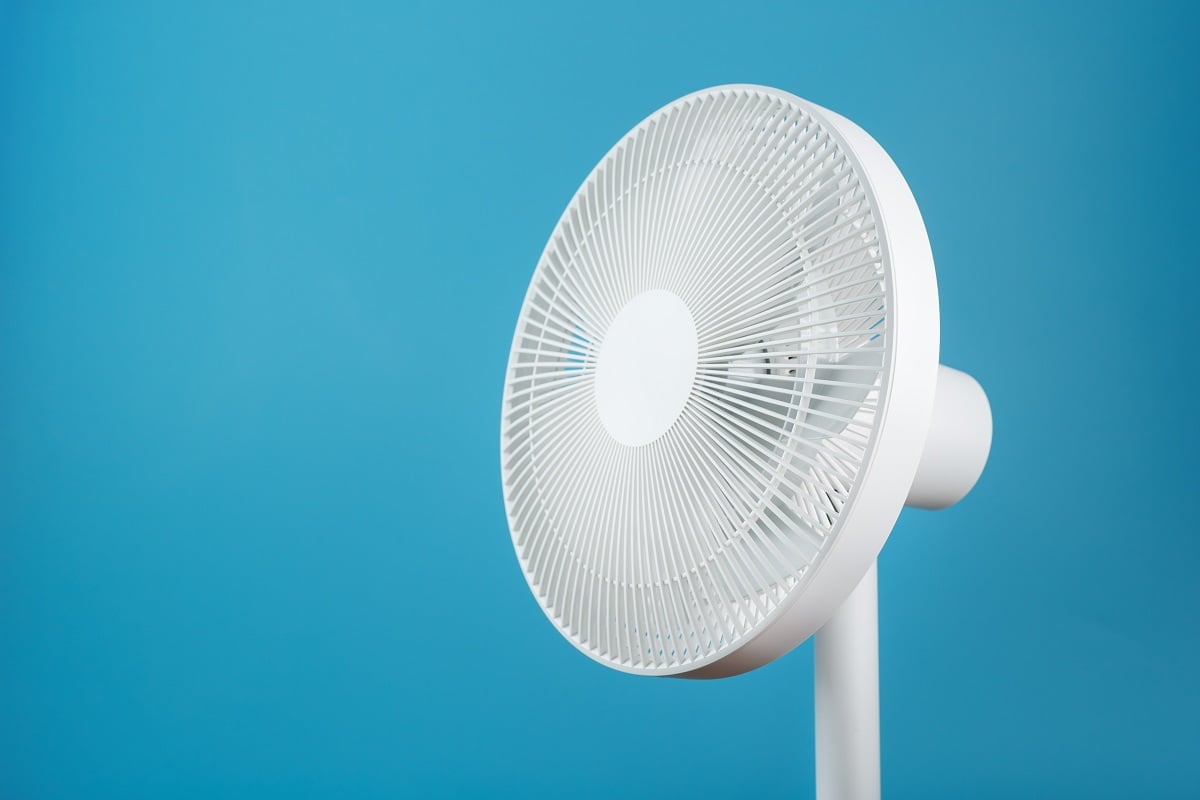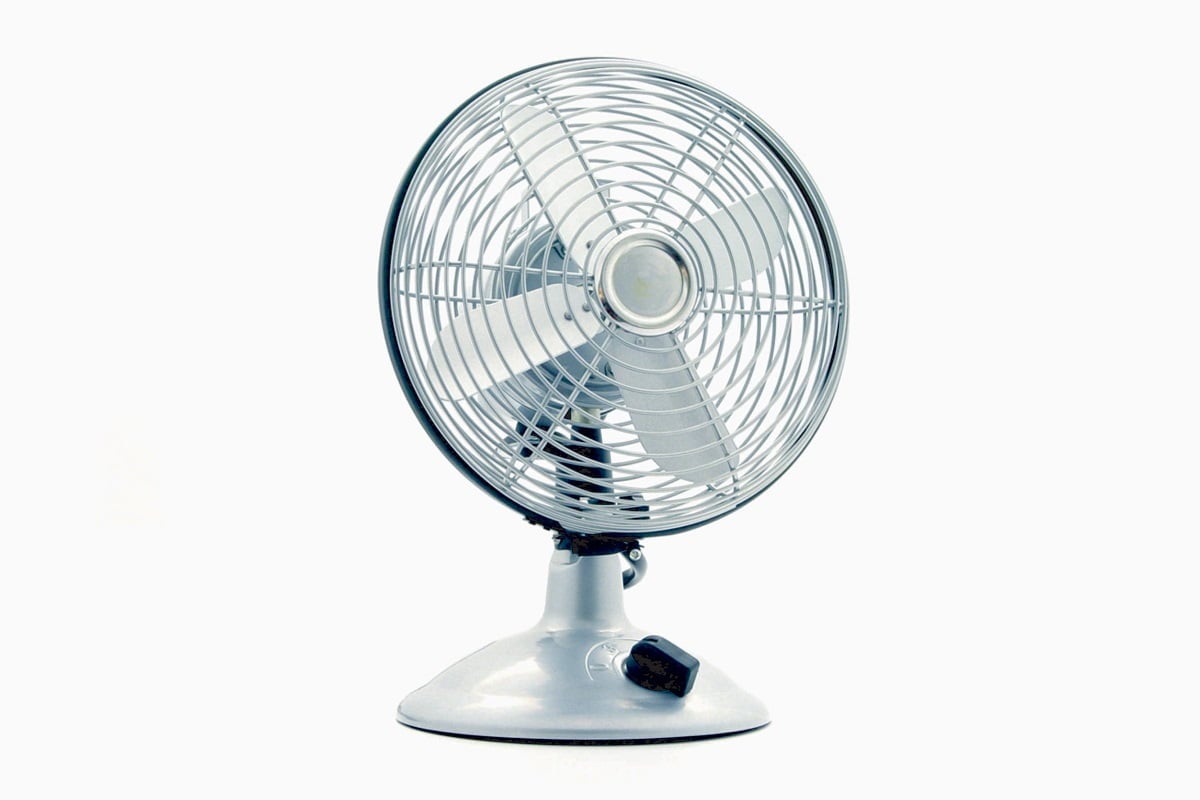An electric fan blowing hot air is a common problem that may occur due to various reasons. These can include the weather, your body temperature, fan speed, and others. Cross ventilation is often the most effective method of dealing with this problem.

Like a blower fan in winter, ceiling fans have become indispensable due to frequent heat waves in summer.
However, in many situations, such fans may not be the ideal solution and can actually make the problem worse by blowing hot air. But this leads to the question, why is the fan blowing hot air?
Don’t worry; we’ve put together this guide on the subject to answer that question. So, check it out now!
Reasons Behind Fan Blowing Hot Air

1. The Ambient Temperature
Unlike an air conditioner, an electric fan does not cool the air in the room but instead just circulates the air already present and improves the airflow. On hot days, the temperature of this air is very high. When your fan blows this humid air, the heat present in it gets absorbed by the skin, making the summer even more unbearable.
This is similar to the way in which an oven functions, using convection to heat up food.
2. Functioning Of The Human Body
The human body continuously generates heat which needs to be dispersed effectively to prevent overheating, which is why it has blood vessels and sweat glands. Water is stored in the dermis, the middle layer of the skin, and when the temperature becomes extremely high, this water is excreted through the sweat glands as sweat. On the surface, the sweat evaporates, helping cool your body down, and a fan simply accelerates this process of evaporative cooling.
However, in situations where the heat is excessive, the fan may not be able to help the sweat evaporate efficiently. In such cases, you will just be feeling the hot air, and the sweat will simply make the situation worse.
3. Improper Ventilation
Using a fan in an improperly ventilated room is another reason why you may be experiencing hot air coming from it. Air blown by a fan in a room with closed windows and doors has no way to go out. Similarly, fresh, cool air from outside cannot enter the room, keeping its temperature high.
Cross ventilation is essential to replace the hot air with cold air, which can then come in as the warm air goes out. For that, make sure the curtains and blinds are closed during the day to prevent the room from heating up but open them up when the sun goes down.
When your windows and ventilators are open at night, hot air rises and escapes outside through these, while cooler air comes in to take its place, cooling the house.
4. Low Fan Speed
You may also feel hot air if the fan runs at a low speed, making it ineffective in extremely hot weather conditions. This may be due to various reasons, such as damaged ball bearings, accumulation of dirt and dust, etc. Cleaning up the fan or replacing the bearings, as the case may be, may make it more effective.
Fan Blowing Hot Air Frequently Asked Questions ?
For How Long Can You Continuously Run An Electric Fan?
With severe heat waves becoming common, you may need to keep your electric fan running continuously for several hours. On average, such fans can be left running continuously for about eight hours without accidents like fires or ceiling damage.
That said, it is best not to leave such fans running for very long hours, if possible, as that can cause the motor of the fan to overheat. Other moving parts can also generate heat due to friction, which can cause problems in the long run. And in the case of a ceiling fan, regular investment in maintenance is recommended.
This is because these fans can collect dust and grime, and an extensive buildup of such materials can cause overheating and even lead to fires.
What Are Some Factors That Can Cause Your Blower Fan To Stop Working?
A blower fan is an important component in furnaces, and its role is to blow hot air into your home. However, like other components, at times, it can malfunction and leave you wondering, “why is my blower fan not working?” There can be several reasons for this, such as dirty air filters, bad motor, faulty capacitor, and others.
Blower fans can also stop working when the evaporator coil freezes up, or the fan relay may have gone bad. Alternatively, there may be a problem with the electrical connection, and the fan may not be getting any power.
Many of these problems can be fixed using DIY techniques, but some may require professional assistance.
Can Car Seat Covers Help You Keep Cool?
When it comes to keeping cool in your car, you may be wondering, “Are car seat covers worth it?” for cooling purposes. The answer to that question is yes, they are worth it, depending on the quality of the covers. Good quality cooling car seat covers have a mesh that promotes better breathability, and some even feature built-in fans.
These cooling car seat covers work by spreading cool air across the seat surface to help you remain cool. They also promote better air circulation to the back, thighs, and legs while absorbing heat and reducing sweating.
Which Is Better For Keeping A Kitchen Cool, An Exhaust Fan Or A Chimney?
The exhaust fan vs. chimney debate has been going on for decades, with no clear conclusion since both options offer different advantages and are suitable for different situations. While both of these can help keep your kitchen cool, a chimney can also get rid of grease, while an exhaust fan cannot.
Because of this, kitchens with chimneys do not require as much cleaning as those with exhaust fans. On the other hand, an exhaust fan is extremely economical and can be installed easily compared to a chimney. Also, chimneys tend to consume more electricity than exhaust fans.

Fan Blowing Hot Air Final Thoughts
Now you know about some of the reasons that can make a fan blow hot air, you may be able to deal with the situation more effectively. In the absence of air conditioning, the best way to ensure proper cooling is to create a cross breeze.
To do that, keep your window open in the evenings and use two fans. One fan should be placed near a window and face outwards, pushing air (hot) outside. The other fan should be placed near another window and face inwards, blowing cold air inside. This can help keep the room cool even on the hottest days.
And with that, we shall be concluding this guide. Until next time!
